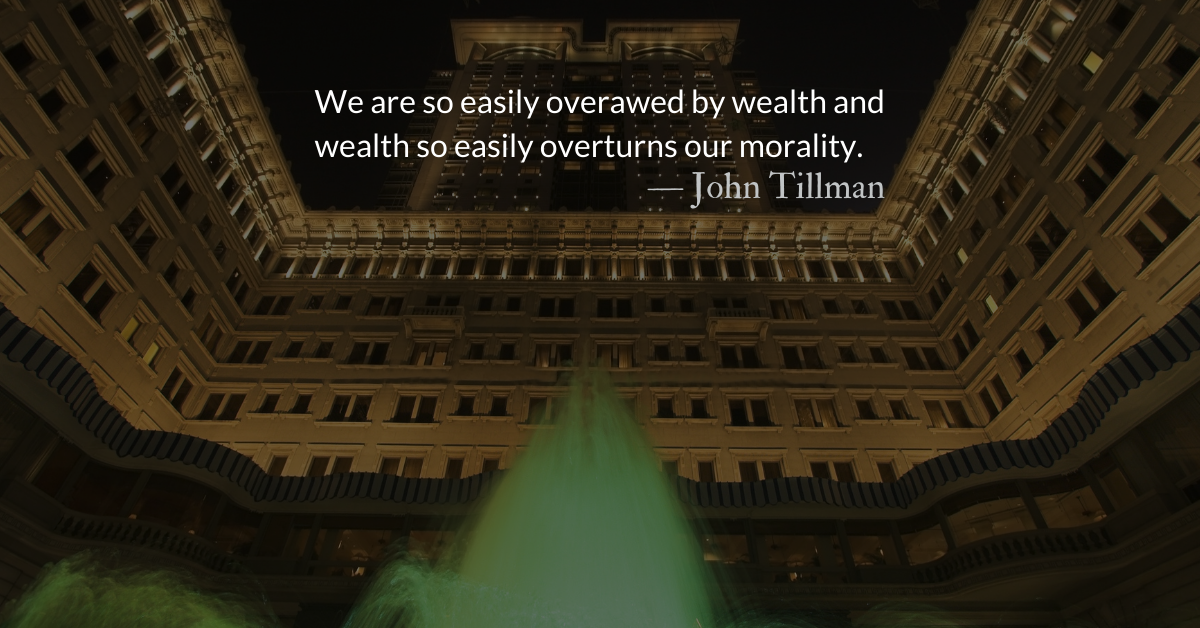Scripture Focus: 1 Kings 10.6-9
6 She said to the king, “The report I heard in my own country about your achievements and your wisdom is true. 7 But I did not believe these things until I came and saw with my own eyes. Indeed, not even half was told me; in wisdom and wealth you have far exceeded the report I heard. 8 How happy your people must be! How happy your officials, who continually stand before you and hear your wisdom! 9 Praise be to the Lord your God, who has delighted in you and placed you on the throne of Israel. Because of the Lord’s eternal love for Israel, he has made you king to maintain justice and righteousness.”
“They would ask me to advise them like a Solomon the Wise
“If you please, Reb Tevye…”
“Pardon me, Reb Tevye…”
Posing problems that would cross a rabbi’s eyes!
And it won’t make one bit of difference if I answer right or wrong
When you’re rich, they think you really know!” — Tevye, “If I Were a Rich Man”, Fiddler on the Roof.
Reflection: Solomon’s Folly
By John Tillman
God promised Solomon wisdom and wealth and power and God delivered. Because of this, I don’t mean to imply Solomon wasn’t wise, however, he used his wisdom foolishly.
Solomon was, perhaps, the world’s first and most successful “influencer.” He became more famous and more wealthy by being famous and wealthy. People shared about his wisdom. Others came to see it and gave massively expensive gifts. The queen of Sheba, wealthy beyond the dreams of any billionaire, is described as being “overwhelmed” by Solomon’s wealth. Does anything impress wealthy people like wealth?
Nothing impresses God like righteousness. Scripture, including words of Jesus warn: wealth often short-circuits righteousness. (Deuteronomy 8.13-14; Matthew 6.20-24) We see this play out in Solomon.
Foolishly, Solomon didn’t apply his wisdom to God’s purposes. The Queen’s statement is ironic: “he has made you king to maintain justice and righteousness.” Solomon failed to use wealth or wisdom to maintain justice or righteousness.
Was anyone richer than Solomon? Perhaps no one, but definitely no king of Israel or Judah. Think for a moment—why did the richest king in the world use slave labor?
Rather than set a new example for the nations of justice and freedom, Solomon remade Israel in Pharaoh’s image instead of Yaweh’s, returning the people God freed to slavery once again.
Economically and politically advantageous marriages corrupted not only the covenant of marriage but Solomon’s worship of Yaweh. Idol worship became commonplace.
In Ecclesiastes, we get behind-the-scenes notes where Solomon describes his extreme lifestyle as a noble experiment. However, few of us accept Solomon’s conclusion about wealth and pleasure: “All is meaningless!” (Ecclesiastes 2.10-11) Most people seek to retest Solomon’s findings. “Sure, sure, wealth and pleasure are meaningless,” we say, “but let me try.”
We are so easily overawed by wealth and wealth so easily overturns our morality. None of us are Solomon but we can all fall for Solomon’s folly. Any of us can become wealthy enough that our perspective is twisted. Any of us can apply a God-given skill, like wisdom, in a foolish and sinful way.
God’s gifts are less important than how we use them. God has chosen us as his royal ambassadors on earth, for the purposes of righteousness and justice. We should judge ourselves and others not by how much wisdom or wealth we have but by how closely we live out God’s purposes of justice and righteousness.
Divine Hours Prayer: The Refrain for the Morning Lessons
Behold, God is my helper; it is the Lord who sustains my life. — Psalm 54.4
– From The Divine Hours: Prayers for Summertime by Phyllis Tickle.
Today’s Readings
1 Kings 10 (Listen – 4:27)
Philippians 1 (Listen – 4:03)
Read more about Paul’s Example of Thankfulness
Who has been used by God to help you in your walk with Christ?
Read more about Better Temples
May we be a better Temple, shining the light of truth that exposes sin but also celebrating and proclaiming forgiveness for all.







